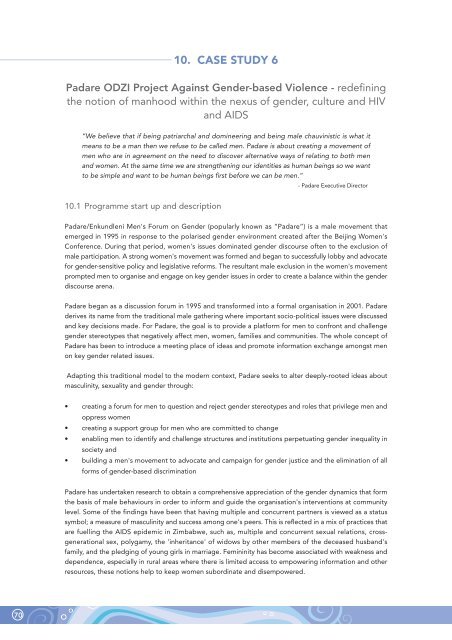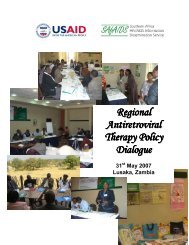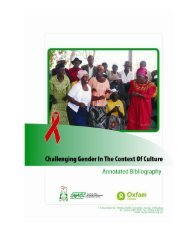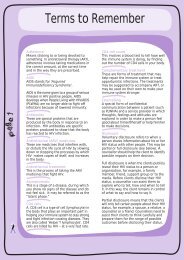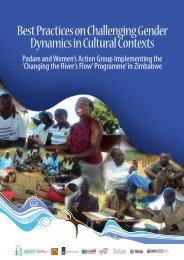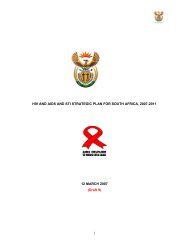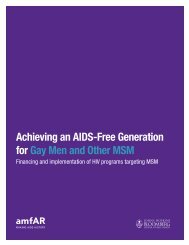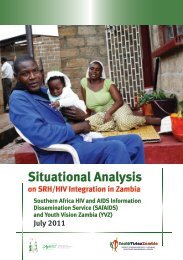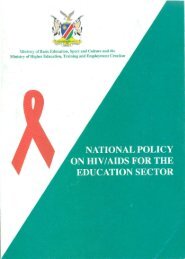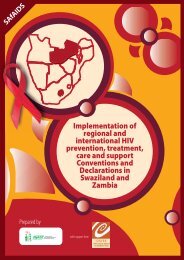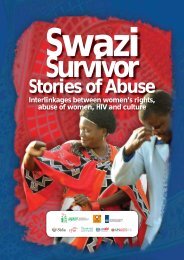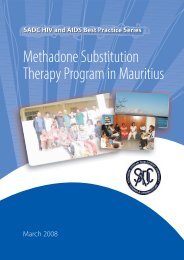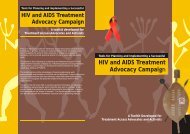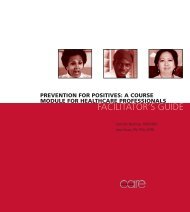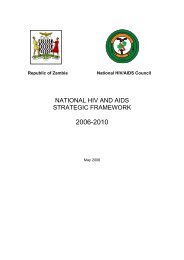Zimbabwean stories of "Best Practice" - SAfAIDS
Zimbabwean stories of "Best Practice" - SAfAIDS
Zimbabwean stories of "Best Practice" - SAfAIDS
You also want an ePaper? Increase the reach of your titles
YUMPU automatically turns print PDFs into web optimized ePapers that Google loves.
10. CASE STUDY 6Padare ODZI Project Against Gender-based Violence - redefiningthe notion <strong>of</strong> manhood within the nexus <strong>of</strong> gender, culture and HIVand AIDS“We believe that if being patriarchal and domineering and being male chauvinistic is what itmeans to be a man then we refuse to be called men. Padare is about creating a movement <strong>of</strong>men who are in agreement on the need to discover alternative ways <strong>of</strong> relating to both menand women. At the same time we are strengthening our identities as human beings so we wantto be simple and want to be human beings first before we can be men.”- Padare Executive Director10.1 Programme start up and descriptionPadare/Enkundleni Men's Forum on Gender (popularly known as “Padare”) is a male movement thatemerged in 1995 in response to the polarised gender environment created after the Beijing Women'sConference. During that period, women's issues dominated gender discourse <strong>of</strong>ten to the exclusion <strong>of</strong>male participation. A strong women's movement was formed and began to successfully lobby and advocatefor gender-sensitive policy and legislative reforms. The resultant male exclusion in the women's movementprompted men to organise and engage on key gender issues in order to create a balance within the genderdiscourse arena.Padare began as a discussion forum in 1995 and transformed into a formal organisation in 2001. Padarederives its name from the traditional male gathering where important socio-political issues were discussedand key decisions made. For Padare, the goal is to provide a platform for men to confront and challengegender stereotypes that negatively affect men, women, families and communities. The whole concept <strong>of</strong>Padare has been to introduce a meeting place <strong>of</strong> ideas and promote information exchange amongst menon key gender related issues.Adapting this traditional model to the modern context, Padare seeks to alter deeply-rooted ideas aboutmasculinity, sexuality and gender through:• creating a forum for men to question and reject gender stereotypes and roles that privilege men andoppress women• creating a support group for men who are committed to change• enabling men to identify and challenge structures and institutions perpetuating gender inequality insociety and• building a men's movement to advocate and campaign for gender justice and the elimination <strong>of</strong> allforms <strong>of</strong> gender-based discriminationPadare has undertaken research to obtain a comprehensive appreciation <strong>of</strong> the gender dynamics that formthe basis <strong>of</strong> male behaviours in order to inform and guide the organisation's interventions at communitylevel. Some <strong>of</strong> the findings have been that having multiple and concurrent partners is viewed as a statussymbol; a measure <strong>of</strong> masculinity and success among one's peers. This is reflected in a mix <strong>of</strong> practices thatare fuelling the AIDS epidemic in Zimbabwe, such as, multiple and concurrent sexual relations, crossgenerationalsex, polygamy, the 'inheritance' <strong>of</strong> widows by other members <strong>of</strong> the deceased husband'sfamily, and the pledging <strong>of</strong> young girls in marriage. Femininity has become associated with weakness anddependence, especially in rural areas where there is limited access to empowering information and otherresources, these notions help to keep women subordinate and disempowered.70


